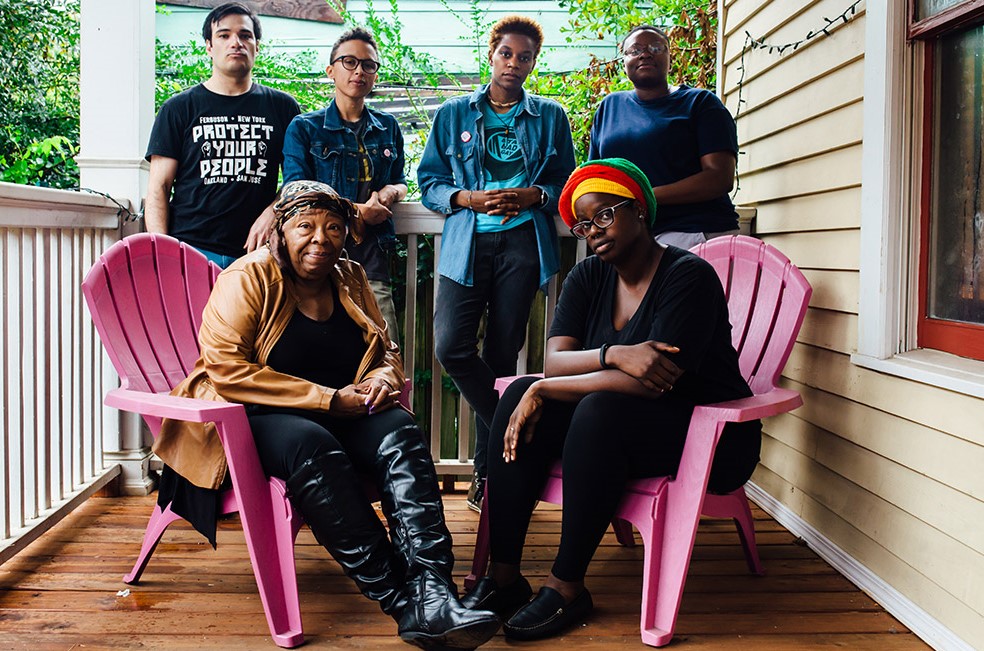The factors leading to both the devitalization and revitalization of places are too numerous to count, and interwoven in too complex a manner to full understand.
So, community leaders and policymakers tend to focus on what’s relatively simple and obvious: renewing buildings, public spaces, and infrastructure. That’s if the local citizens are lucky. If they’re unlucky, their public leaders will focus on busywork that gives the illusion of productive activity, while never taking the risk of failure by doing something “real”.
The endless cycle of planning efforts that result in plans that never leave the bookshelf is a prime example, as are tax incentive programs designed to attract businesses, but without any strategy to turn those businesses into actual revitalization.
But the human side of revitalization is often lost in all this focus on money and engineering. It’s common knowledge that children without effective parenting are more likely to join gangs.
More gangs equals more violence and crime. More violence and crime equals reduced confidence in the future of a place. Reduced confidence in the future means more people and employers will leave, and fewer will move in. That, in turn, further reduces confidence in the future of the place, creating a negative feedback loop that can send communities down the tube in remarkably little time.
So, at this point, you might be lamenting the poor quality of parents that leaves these kids unattended, but the local justice system is actually one of the major culprits.
At any one time in this country, about 450,000 people are behind bars awaiting trial, and the vast majority of these people — 5 out of 6 — are there simply because they cannot afford the bail a judge has set for them.
Bail was originally intended as a deposit to ensure that an accused person would return to court. But in recent years, judges have been setting bail higher and higher. Between 1992 and 2009 there was a 43 percent increase, after adjusting for inflation, in the amount of bail imposed in felony cases in the 75 largest counties in the U.S.
The overall effect is that people who have not been convicted of any crime are increasingly filling America’s jails. Ninety-five percent of the growth in the overall jail inmate population in the U.S. since 2000 was just people in jails awaiting trial. Poor people, people of color, and people with certain disabilities are more likely to be held in jail before trial and to be assigned high bail amounts, and thus face a greater likelihood that they’ll end up with a criminal conviction.
Even worse, about 50% have been jailed on “junk charges” that are dismissed as soon as the case comes to trial. And a significant percentage of those that go to trial are found innocent. Meanwhile, weeks or months in jail have robbed the person of their job, their home, and often their family.
It’s no surprise then, that when given the chance plead guilty to something they didn’t do in order to avoid both jail and being separated from their children, most parents will take it. But take away the threat of jail, and a huge portion of the guilty pleas magically disappear.
Everyone knows that America’s money-based legal system, which dispenses “justice” in direct proportion to the arrested person’s income, is in need of a top-to-bottom renovation. And don’t get me (Storm) started on the for-profit prison industry.
But eliminating cash bail is a relatively simple fix that could be enacted without significant expense.
Doing so would help avoid the unnecessary destruction of both families and low-income neighborhoods. We would likely see such neighborhoods slowly coming back to life when this nightmarish practice is eliminated. Sometimes, it’s not what we do that revitalizes places, but what we stop doing.
In Les Misérables, Jean Valjean’s life is ruined when he gets a 19-year jail sentence for stealing a loaf of bread to feed his sister’s starving children. There are desperate American mothers in jail for that same offence right now, simply because they can’t post a $500 bail bond.
Featured photo by Eugene Lyndon / YES! Magazine shows members of the Black Mamas Bail-Out project in Atlanta, which 60 African-American mothers from jail using community bail funds.

